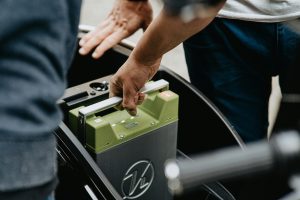COVID-19 shelter-in-place orders have forced thousands of non-essential businesses to close their doors across the nation. When businesses physically close their doors, their property insurance coverage will be affected. The specific impact depends on whether the property is considered vacant or just unoccupied.
“Vacant” properties carry an increased risk of loss over a facility that’s simply “unoccupied.” Most commercial property policies have coverage restrictions for vacant buildings, often called a “Vacancy Clause.” It will deny coverage for water damage, theft and vandalism when a building is vacant for more than 30 or 60 consecutive days, depending on the policy. Other critical losses like fire, lighting, smoke and wind/hail, will be also significantly reduced when buildings are deemed “vacant.” For losses that are covered, the insurer will typically pay actual cash value instead of replacement costs for vacant buildings.
By contrast, buildings deemed “unoccupied” are still maintained, as merchandise, furnishings and equipment may still remain inside. Unoccupied but preserved facilities have a greater chance of their property policies covering a claim.
Vacant vs. Unoccupied
At the core of the issue of vacant vs. unoccupied is the occupant’s intention to return. Are the utilities still connected and in operation? Is the building inhabitable? Consider the following scenarios that are likely to deem a property “vacant,” which may compromise property coverage:
Appearance/Security
Criminals will typically look for the easiest opportunity to vandalize a property. If there’s a jewelry store that’s lit up and secured even while unoccupied, and there’s another without security that looks vulnerable, the vacant one will be an easier target.
Water Damage
If heat has been shut off to reduce costs, there’s a greater chance a pipe can burst and do damage. Without anyone there, it could be days or weeks before damage is uncovered. A building that’s maintained regularly even without occupants is less likely to experience water damage.
Fire Protection
Be aware that If the sprinkler system is disengaged and fire pumps and alarms are not tested/serviced regularly, the facility will likely be deemed to be vacant.
Navigating Property Coverage Today
When facing a business closure, consider the following best practices for navigating property coverage:
Create a Plan
When planning to return to the facility as soon as possible, remove all perishables and valuables from inside and secure doors and windows. Support employees, security personnel or facilities managers still inspecting or maintaining your site. Spell out their duties, including testing faucets and the fire and sprinkler system regularly. Make sure they continue to abide by OSHA and other safety rules, including those put out by federal and local health authorities.
Communicate With Brokers
Work with an insurance broker that specializes in real estate to discuss your property policy coverage exclusions and how you can safeguard an unoccupied facility.
For the latest information, guidance and resources on COVID-19 to help you protect what matters most, visit www.hubinternational.com/coronavirus.
Frank DeLucia
HUB International Northeast
100 Sunnyside Boulevard
Woodbury, NY 11797
frank.delucia@hubinternational.com
212-338-2395





















